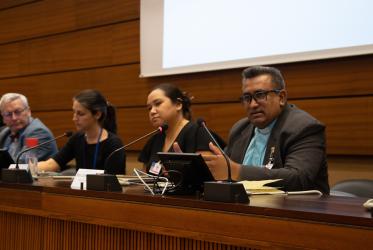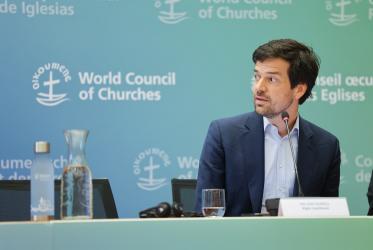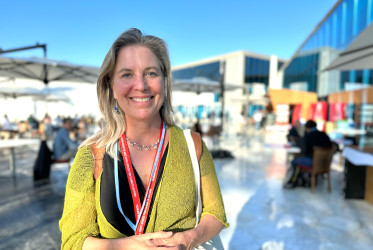Displaying 41 - 60 of 467
UN water summit: how we can make a difference
20 March 2023
Seven Weeks for Water 2023 takes global approach
22 February 2023
On World AIDS today, tackling inequalities is a matter of justice
02 December 2022
Neddy Astudillo at COP27: “We still have the power to protect life”
18 November 2022














